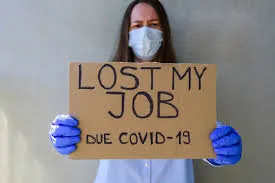
The Australian Council of Social Service (ACOSS) has called on the Federal Government to reverse its decision to increase job search requirements from July 1to 20 job applications per month as standard for most people in jobactive and online employment services.
ACOSS CEO Dr Cassandra Goldie said: “It doesn’t make sense to force people to apply for 20 jobs per month, as it’s unlikely there will be that many appropriate roles available for most people. Employers end up with reams of unsuitable applications that make recruiting harder for them.
‘’And it makes even less sense in the middle of a pandemic.
“While job search requirements are usually suspended in lockdown areas, they snap back as soon as the lockdown is lifted. This doesn’t give people seeking jobs or employers time to adjust.
“It’s hard enough to get by on JobSeeker at a brutal $44 a day at any time, but it’s especially hard during a pandemic, and harsh compliance only adds to the strain without making it more likely that people will find paid work.
“‘Instead of scapegoating people who are unemployed with ‘job-dobber lines’ the Federal Government should lift its investment in paid work experience and training for people who are still left behind after the deepest recession in living memory. It should act on the recommendations of its own expert panel, to provide a more tailored, individual approach to supporting a person hit by unemployment to secure employment again.
“The labour market has experienced a massive shock due to ongoing lockdowns and closure of both international and domestic borders. While there were more job vacancies after lockdowns eased the latest data from the ABS still shows that for every job available, there were seven people unemployed or looking for more paid work.
‘’As the economy recovers and the latest lockdowns are eased, it will take time for employers and people seeking paid work to adjust. Employers – for example cafes and hotels in tourist regions – are faced with sudden surges in consumer demand. Yet people living in larger cities who are unemployed can’t just abandon their homes and move to take up those jobs. For a start, they would struggle to find affordable housing in those places right now.
“People living in areas with few jobs, single parents with young children, and those who face discrimination such as older people and people with disability, should automatically be given lower job search requirements. Imagine being forced to apply for 20 jobs a month when you’re over 50 and very likely to be rejected every time. People can ask to have their requirements lessened but that doesn’t always happen.
“There is no COVID normal and job search requirements should not return to punitive pre-COVID levels,” Dr Goldie said.


